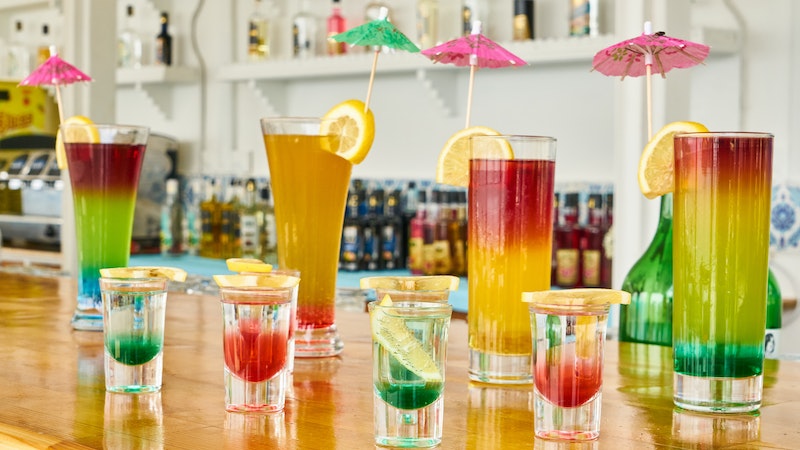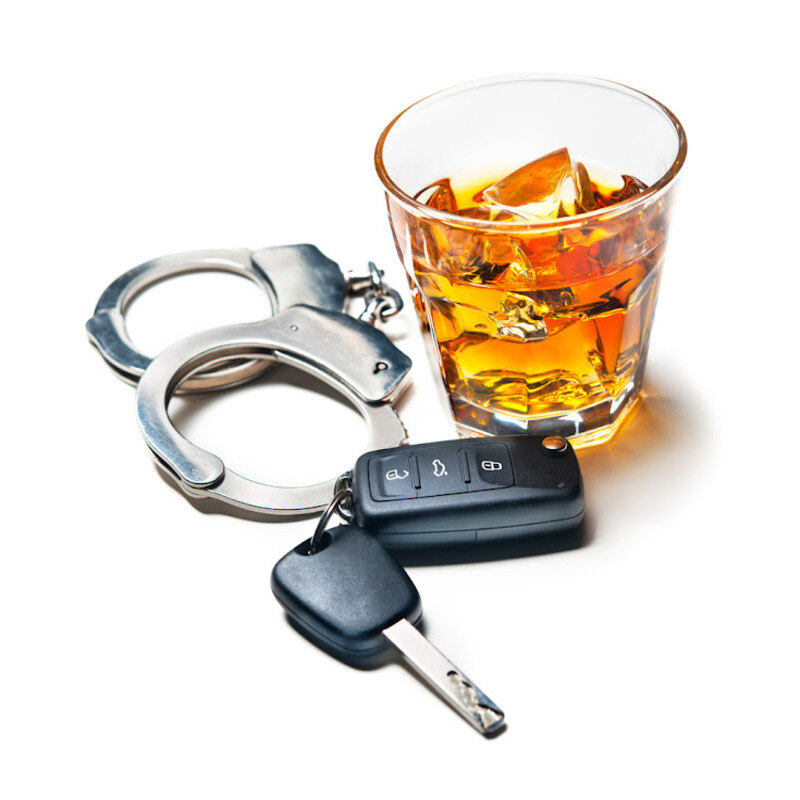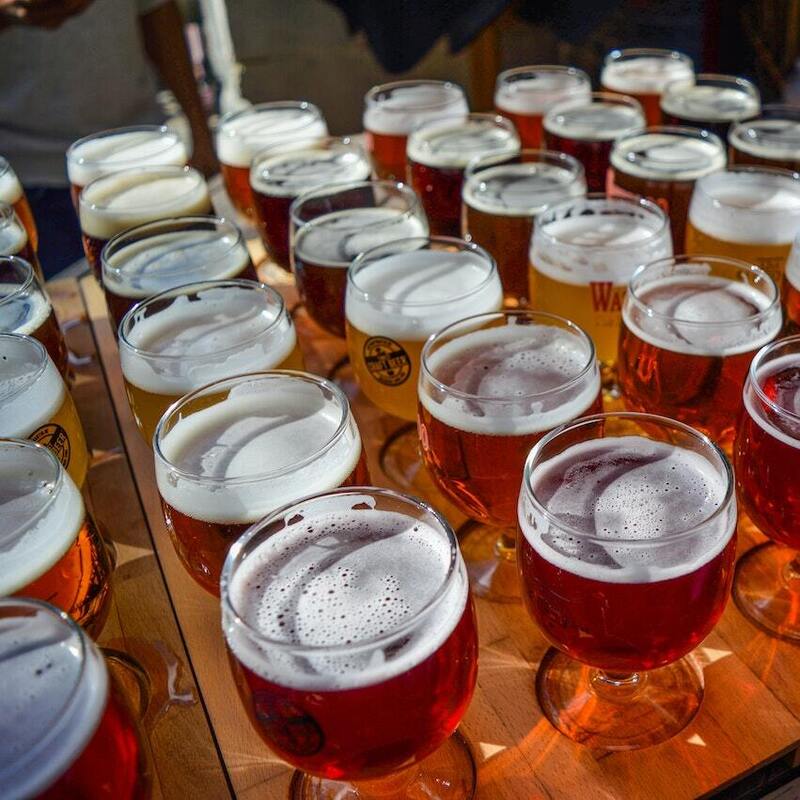Introduction
TGIF (Thank God It’s Friday) is one of the most popular and used abbreviations on Friday afternoons. This is when the brain has officially switched to the weekend plans ahead, starting with that evening. This is the time when your phone starts ringing or maybe you are the one making calls “kupanga watu” for an evening of merry-making and memories 💃🕺. The plans may be going out with friends for drinks, having an indoor get-together or having a private party to celebrate something or just because. And, in the Kenyan way of doing things, “hakuna sherehe bila pombe! 🍻”
Alcohol is one of the most widely consumed substances in the world, and it has been enjoyed by humans for centuries. Whether it’s a glass of wine with dinner, a few beers with friends at a local pub, or a cocktail at a party, alcohol is a popular social lubricant. However, drinking too much can lead to negative consequences such as hangovers, dehydration, alcohol poisoning and even addiction.
In this article, we’ll discuss how to drink responsibly, how to avoid hangovers, and what to eat and drink to minimize the negative effects of alcohol.
1. Tips on How to Drink Responsibly
a) Amount of Alcohol
When it comes to alcohol, it’s important to remember that moderation is key. It can be easy to get caught up in the moment and drink more than you intended, but that can lead to ‘drunk-dialling’ your ex 🤭 or something serious like alcohol poisoning!
The amount of alcohol that is considered safe to consume varies depending on a person’s age, gender, weight, and overall health. In general, moderate drinking is defined as up to one drink per day for women and up to two drinks per day for men.
A standard drink contains about 14 grams of alcohol, which is equivalent to 300 ml of beer, 150 ml of wine, or 50 ml of distilled spirits.
It’s important to keep track of how much alcohol you’re consuming and to drink in moderation to avoid negative consequences.
b) Mixing Alcohol
Mixing different types of alcohol can increase the risk of negative effects such as nausea, vomiting, dehydration, dizziness and even blackouts. When you mix different types of alcohol, your body has to work overtime to process it all, and this can put a significant strain on your liver and other vital organs.
One of the most common mistakes people make is mixing beer with hard liquor. Beer is a low-alcohol beverage, and when you mix it with hard liquor, you increase the alcohol content significantly. This sudden spike in alcohol can lead to rapid and intense drunkenness that can be dangerous. Furthermore, mixing different types of alcohol may cause you to lose track of how much you’ve had to drink, leading to overconsumption.
It is best to stick to one type of alcohol throughout the night and to pace yourself by drinking slowly. Drinking water in between alcoholic drinks can also help to slow down the rate of alcohol absorption and reduce the risk of negative consequences.
c) Be Mindful of Others
Alcohol can lower your inhibitions, which can lead to poor decision-making like bar fights. Drinking responsibly means being mindful of those around you when enjoying your drinks. Don’t pressure others into drinking, and never take advantage of someone who is intoxicated.
d) Don’t Drink and Drive
Drinking and driving is never a good idea. Not only is it dangerous, but it is also illegal. If you plan on drinking, make sure you know how to get home safely by having a designated driver or using a taxi.
2. Tips on How to Avoid a Hangover
Hangovers are a common side effect of drinking too much alcohol. Symptoms can include headaches, nausea, fatigue, and sensitivity to light and sound. To avoid hangovers, it’s important to adhere to the following;
a) What to Eat and When
Eating a meal before drinking can help to slow down the rate of alcohol absorption and reduce the risk of negative consequences. Foods that are high in protein and healthy fats, such as nuts, cheese, and avocado, can help to slow down the absorption of alcohol.
Eating a meal after drinking can also help to reduce the negative effects of alcohol by providing your body with essential nutrients and energy.
b) Water Intake
Drinking water throughout the night is essential to stay hydrated and avoid negative consequences such as hangovers and dehydration. It’s recommended to drink one glass of water for every alcoholic drink to stay hydrated and to reduce the rate of alcohol absorption.
Drinking water before going to bed can also help to reduce the negative effects of alcohol and avoid dehydration.
c) Drink in Moderation
To minimize the effects of drinking, it is important to practice drinking responsibly. This means drinking in moderation and avoiding excessive drinking. It’s also important to understand the effects of alcohol on the body and to be aware of your tolerance level.
Pregnant women, people with certain health conditions and/or on certain medications should avoid alcohol altogether.
3. The Effects of Alcohol on the Body
- Alcohol is absorbed into the bloodstream from the stomach and small intestine. Once in the bloodstream, it can affect various organs and bodily functions. The liver is responsible for processing alcohol and breaking it down into less harmful substances, but excessive drinking can overwhelm the liver and cause damage to it over time.
- Alcohol can also affect the brain, leading to impaired judgment, impaired coordination and memory loss. Long-term heavy drinking can lead to neurological damage such as dementia.
- In addition to physical effects, alcohol consumption can also have social and emotional consequences. Drinking too much can lead to risky social behaviour and accidents as well as impair relationships leading to emotional instability.
- Excessive drinking can also lead to addiction, which can have serious long-term effects on a person’s health and well-being.
Conclusion
Alcohol consumption can have both positive and negative effects on the body. While moderate drinking may have its benefits, excessive drinking can lead to negative consequences such as liver damage, accidents and addiction.
Practising how to drink responsibly by eating foods rich in proteins, drinking in moderation and fat before and during the drinking spree, and alternating glasses of water with glasses of your favourite tipple will help you to avoid excessive drinking as well as eliminate the possibility of getting a hangover.
By understanding the effects of alcohol on the body and taking steps to minimize negative effects, you can enjoy alcohol safely and responsibly. Always remember to drink responsibly!
How to order
Having learned to drink responsibly, we can go ahead and enjoy our favourite drinks😊. Explore the different beverage options on our website and place your order here. Place your orders, and we shall promptly deliver them to your doorstep.
Alternatively, reach us via call or WhatsApp at 0705570066 for inquiries or to place an order.
We are located along Biashara Street and Accra Road within Nairobi CBD. You are welcome!
By Roseline Maina: Digital Marketer




















